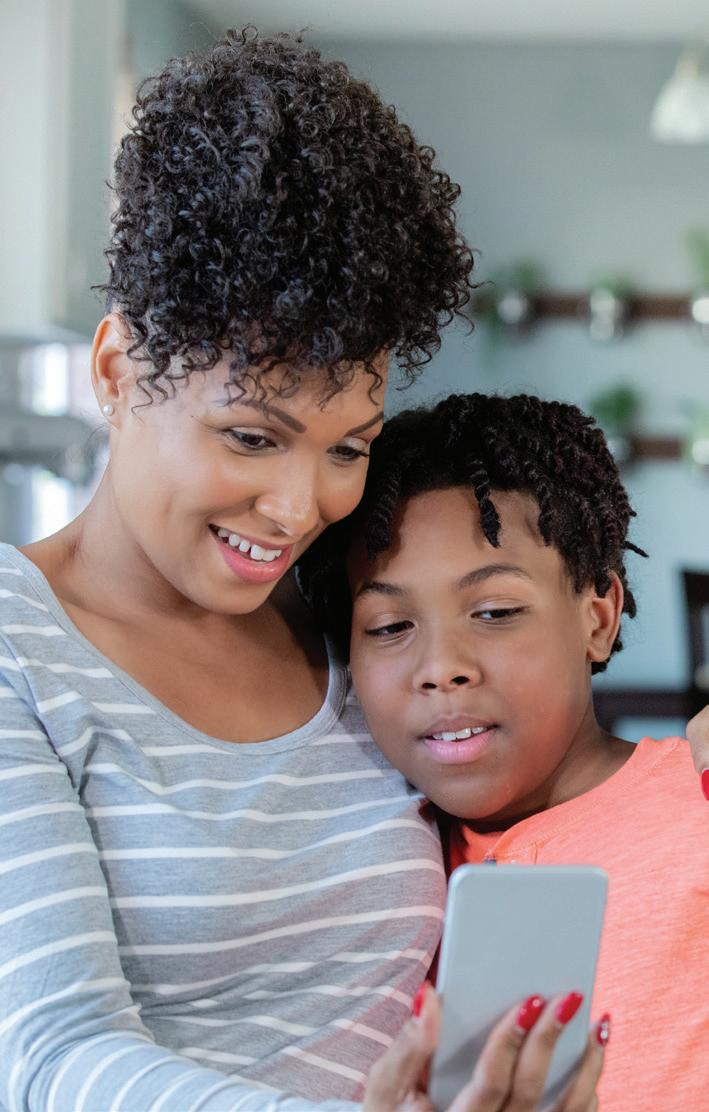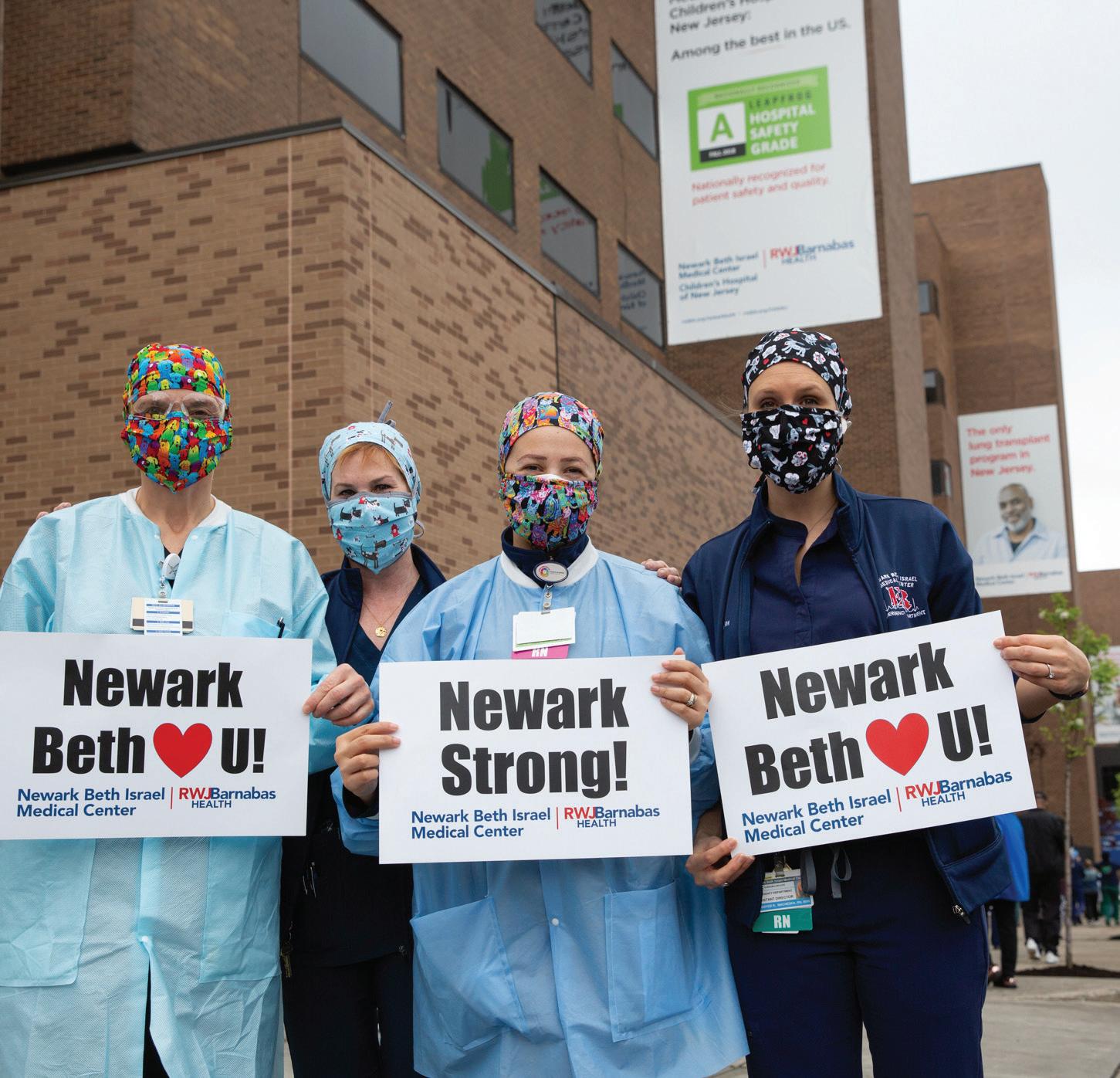
18 minute read
YOUR SUPPORT SUSTAINS US. Communities have
from Newark Beth Israel Medical Center and Children's Hospital of New Jersey's Healthy Together:COVID-19
YOUR SUPPORT SUSTAINS US


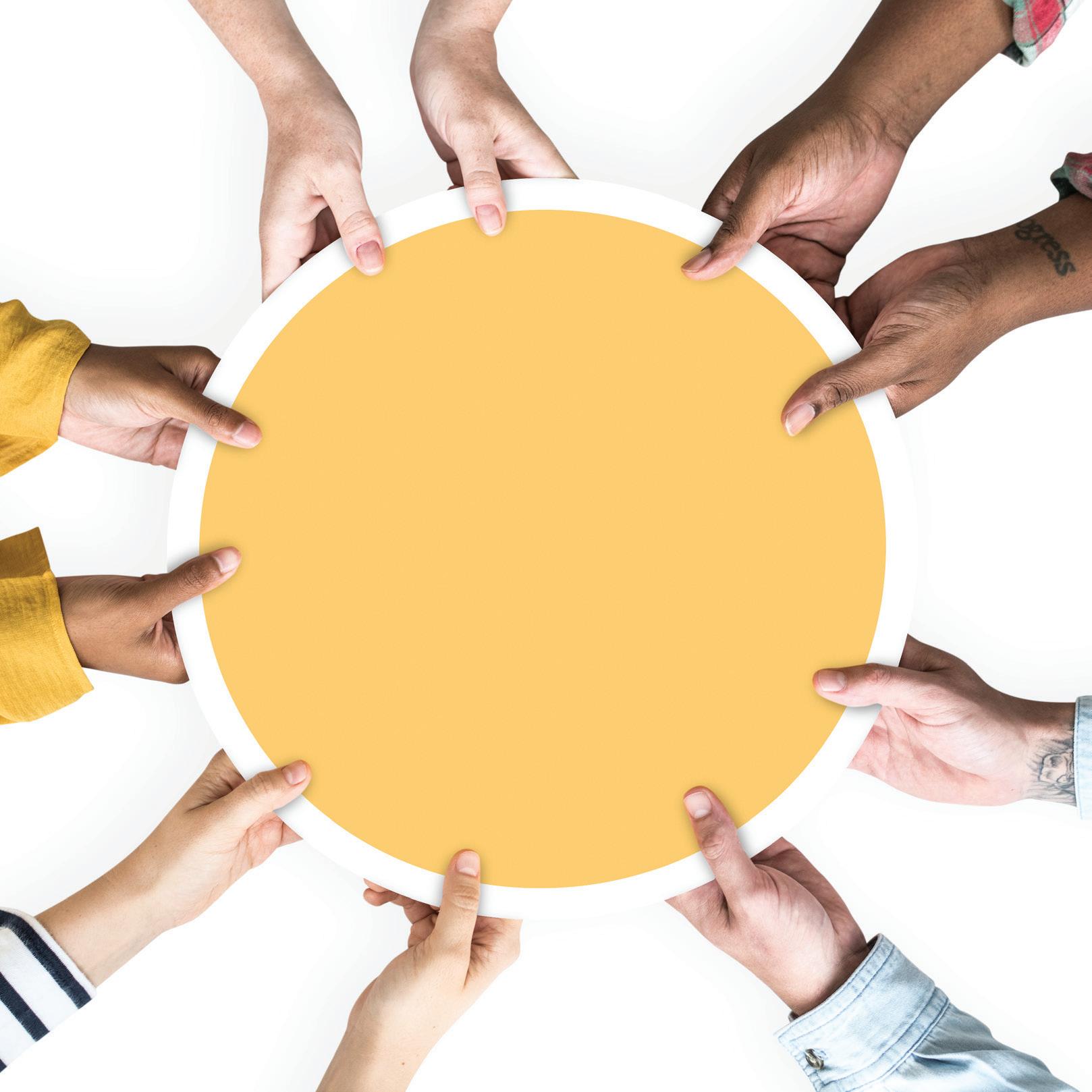
COMMUNITIES HAVE STEPPED UP FOR THEIR LOCAL HOSPITALS IN A BIG WAY—AND YOU CAN STILL HELP .

The off ers from the public began as soon as the crisis did. People emailed, texted and called hospitals, some in tears, wanting to know how they could help local healthcare providers.
Th ey sent money. Th ey donated dinners. Th ey sent cards. Someone had a friend who had a friend whose company could provide Personal Protective Equipment (PPE). A small painting business had 20 face masks to donate. A hardware store provided gloves. Th e contributions came in a steady stream.
“Th e donations were from longtime loyal donors as well as those who had never made a gift to one of our hospitals before,” says Glenn Miller, Executive Vice President and Chief Development Offi cer at RWJBarnabas Health (RWJBH). “People wanted to make sure that our doctors, nurses and staff had what they needed to stay healthy and do their jobs.
“Th e word ‘heroes’ gets used a lot, and admiration for the dedication of our caregivers was driving this outpouring of support,” he continues. “Supporters saw our caregivers getting up to go to work every day under incredibly diffi cult circumstances, fi ghting to save lives.”
As of mid-May, the RWJBH system as a whole had received nearly $11 million in support. Of that amount, $6.7 million came in checks and online gift s, large and small; $3.2 million in donated PPE and other $3.2 million in donated PPE and other supplies; and $870,000 in food donations. supplies; and $870,000 in food donations.
“RWJBH hospitals have always enjoyed “RWJBH hospitals have always enjoyed wonderfully generous support from the wonderfully generous support from the communities they serve,” Miller says. “In communities they serve,” Miller says. “In recent months, I think our doctors and recent months, I think our doctors and nurses were certainly reminded about nurses were certainly reminded about how much people value them and the how much people value them and the work they do.” work they do.”
ONGOING NEED
Th e money raised goes into the RWJBH system’s Emergency Response Fund, where it’s used to purchase much-needed equipment and supplies.
Th e fund also is used to support frontline hospital workers. “When employees need to be quarantined employees need to be quarantined away from their families, we’ve away from their families, we’ve been able to help make that happen,” been able to help make that happen,” Miller says. “Other colleagues needed Miller says. “Other colleagues needed childcare so they could come to work. childcare so they could come to work.
And sadly, we’ve lost colleagues, and we’re And sadly, we’ve lost colleagues, and we’re working to develop resources to address the working to develop resources to address the repercussions of such terrible losses.” repercussions of such terrible losses.”
Beyond tangible support, the outpouring Beyond tangible support, the outpouring from the community provided an invaluable from the community provided an invaluable morale boost. “For healthcare workers going morale boost. “For healthcare workers going through this experience, to take a break through this experience, to take a break and fi nd a hot meal or a card or a note—it’s and fi nd a hot meal or a card or a note—it’s meant the world to them,” Miller says. meant the world to them,” Miller says. “When you feed someone, you’re enriching “When you feed someone, you’re enriching their body, obviously, and also their soul.”
Th e Emergency Response Fund remains open. “We’re in an ongoing crisis, and philanthropy will continue to play an important role in helping us prepare for any surges or future outbreaks,” Miller says.
In addition, capital projects, new programs and equipment upgrades will still need to be funded for each medical center.
“We’re incredibly grateful for the outpouring of support, and the tremendous positive impact it has on our work and our commitment to keeping communities healthy,” Miller says. “We cannot thank people enough.”
Th e gift s also have a benefi t for the giver. “We’ve heard that people in the community want to feel that they have the ability to bring hope,” says Miller, “and that they’re empowered to make a diff erence.”
To donate to Newark Beth Israel Medical Center or to RWJBarnabas Health, visit the Emergency Response Fund at www.rwjbh.org/give.
‘WHAT I’VE LEARNED FROM HAVING COVID-19’
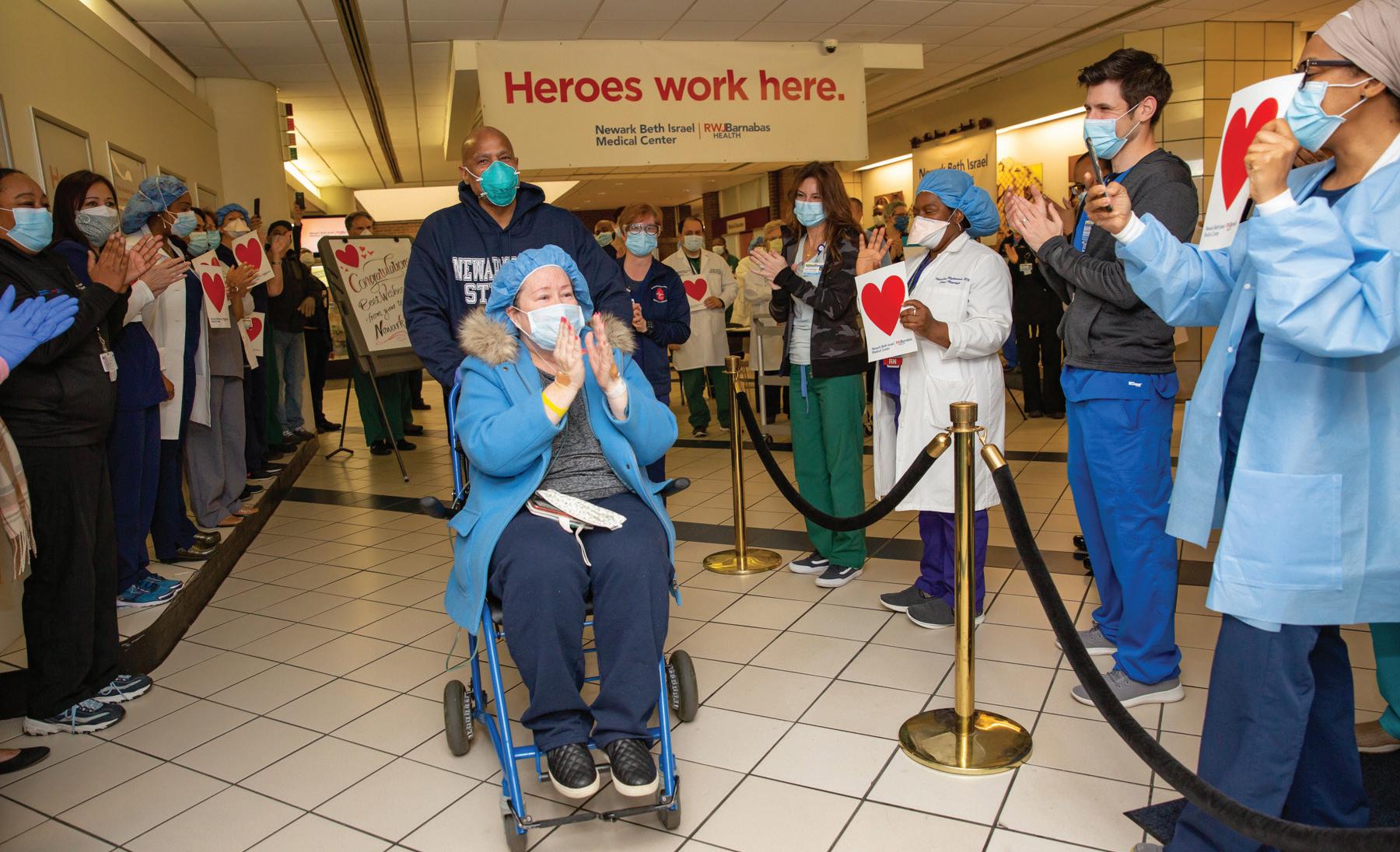
A SEASONED NURSE AND EDUCATOR GAINED NEW INSIGHTS FROM HER EXPERIENCE AS A SERIOUSLY ILL COVID-19 PATIENT.
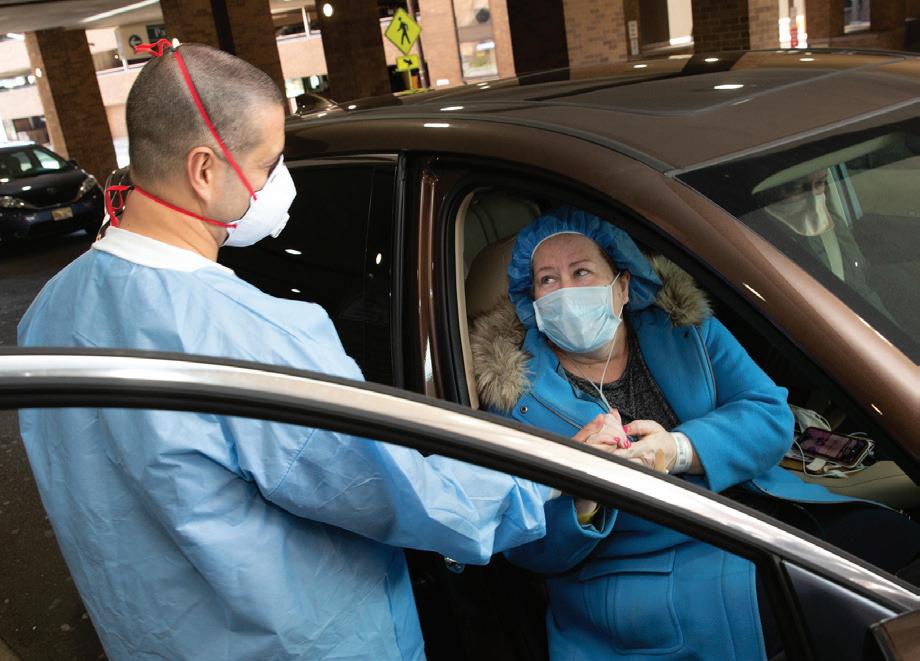
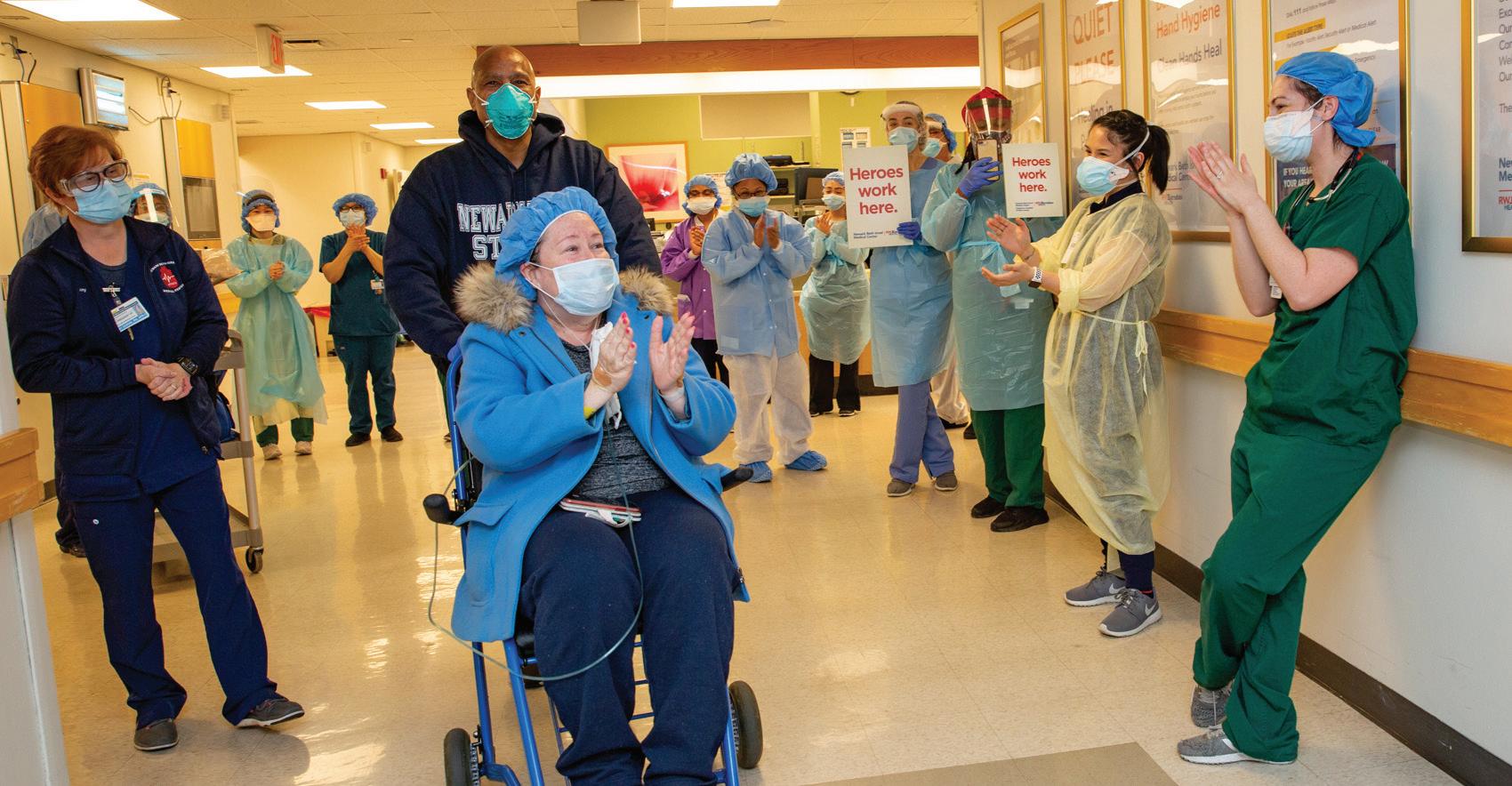
Mary Koch, MSN, RN-BC, CNOR, is the Director of Nursing Education at the Center for Professional Development Innovation and Research at Newark Beth Israel Medical Center and Children’s Hospital of New Jersey. B y late February, we at Newark Beth Israel Medical Center had already started discussing the imminent threat of COVID-19. Being in such close proximity to New York and Newark Airport, we knew we had to be able to recognize the signs of COVID-19 and care for those patients.
We started preparing nurses, who had long since assumed administrative roles, for frontline work—reviewing the basic functionality of clinical duties such as how to take vital signs, manage IVs and the like. If we had a surge of patients, we wanted to be ready.
And we did see that surge. In the beginning, we were seeing very sick people, testing was limited and most people did not recognize the symptoms of the illness, so they came to us when they were really quite ill.
A COMPLEX VIRUS
I came home from work on a Friday and when I got out of the car, I realized I had a fever. I stayed home for a week trying to treat myself with Tylenol, hot lemon water and vitamin supplements. We nurses are notorious for being bad patients.
What makes this virus so complex is that it hits people in so many different ways. I’ve seen it in my own family: My 92-year-old dad tested positive, but has had no symptoms at all. My two sisters tested positive and one had cough and a low-grade fever; the other had cough, wheezing and a high fever, but they both managed their symptoms at home.
I never had a cough, but the tipping point for me came when I was terribly weak and debilitated with vomiting, diarrhea and constant fever. When I finally went to Newark Beth Israel, my oxygen was very low and my lungs were
Mary Koch was “clapped out” and escorted out of the hospital by Newark Beth Israel Medical Center’s President and CEO Darrell K. Terry, Sr., as cheering colleagues looked on.
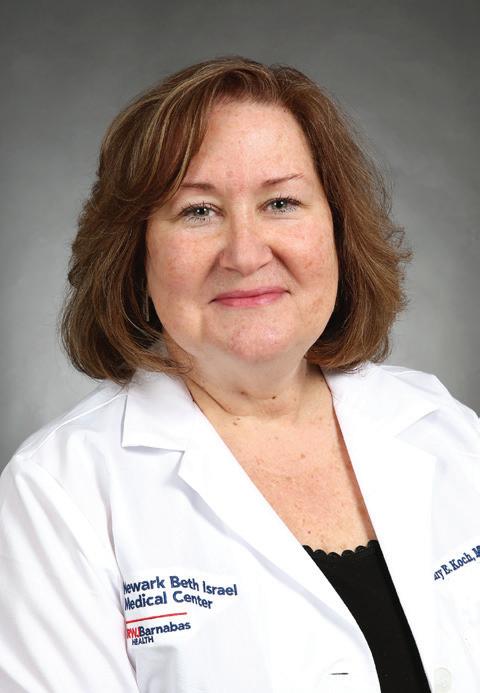
—Mary Koch
inflamed. They admitted me, and I stayed in the hospital for six days; I was on oxygen the whole time.
GRACE UNDER PRESSURE
At that point, in the northern New Jersey area, the news was constantly about the number of cases and deaths. The local Emergency Departments were just flooded. As I lay in bed, I could hear, call after call, the Rapid Response nurses and intubation teams being summoned to respond to codes. This was not our norm. Some of our colleagues started getting sick; it just did not compute.
However, I was never so proud to be a nurse and to be in healthcare as when I saw how our doctors, nurses and all of our staff were caring for our patients and dealing with so much loss. Yet every day they got up, got dressed, and went back into work.
When the door to my room opened, I could get a sense of what was going on, but through all of this, none of the people who took care of me ever made me feel I was interrupting them. They didn’t mention what was happening on the floors. Every nurse and nurse’s assistant came into my room with a smile. They would help me move, take me to the bathroom, give me Tylenol, put blankets on me and take the blankets off.
I will never forget the way those people made me feel. I was scared, but I felt that I was going to be safe and they weren’t going to let anything happen to me.
LESSONS LEARNED
I have been orienting and onboarding nurses for many years, and patient experience is always a big part of our program. We review national patient safety goals that come from The Joint Commission. I also like to use storytelling as part of my presentation, because it has such impact when someone can share their own personal experience.
I will be telling nurses the story of my time as a COVID-19 patient. I’m going to share my vulnerabilities and my fears. Was I going to get worse? Was I going to be a code? Now I felt it, firsthand, the power that we as nurses and healthcare professionals wield just by our demeanor and behavior.
People feel it when you come in positive and greet them, rather than just come in as though you’re ticking off a box. I want each nurse to realize that each person gives off a glow, an aura or personality, whatever you want to call it, and that carries over into the patient room. Whether they are taking care of a patient in the ER, taking them for an X-ray or helping them as they’re lying in bed, the way they approach the job has a big impact on the patient. We all need to remember that.
My experience was frightening, but I’m immensely grateful for the wonderful care I received. Once you have experienced this, you see that healthcare workers are truly heroes. You also see how imperative it is for the public to take precautions. This virus is serious and unpredictable. Stay safe!
SAFE AND SOUND IN THE E.D.


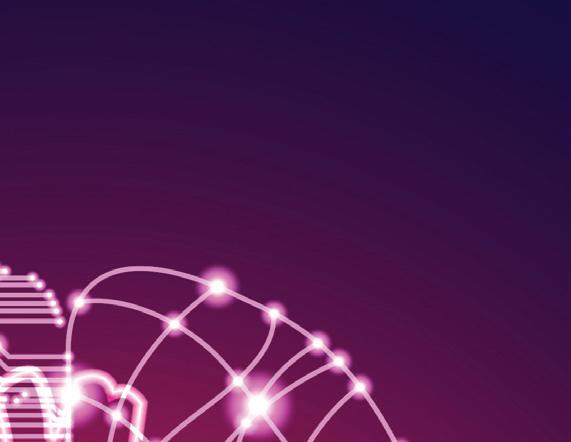


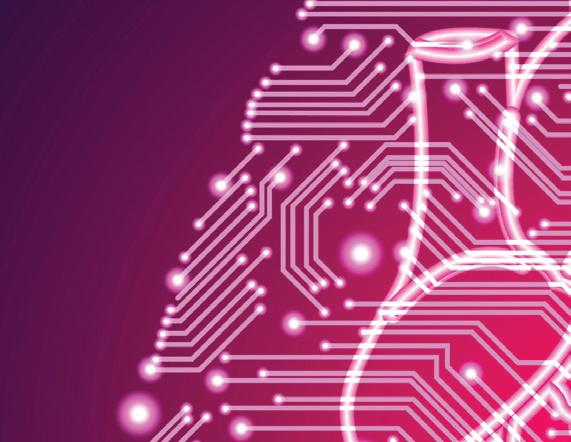
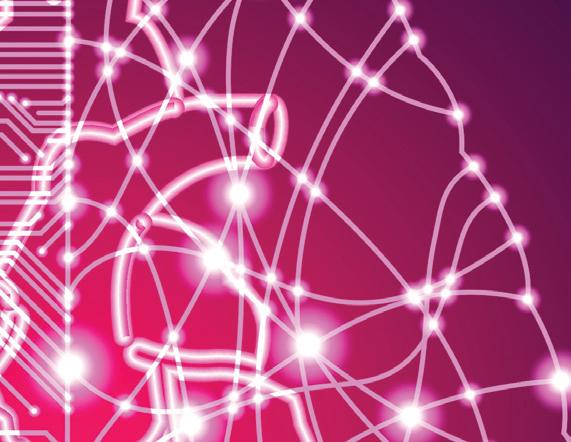



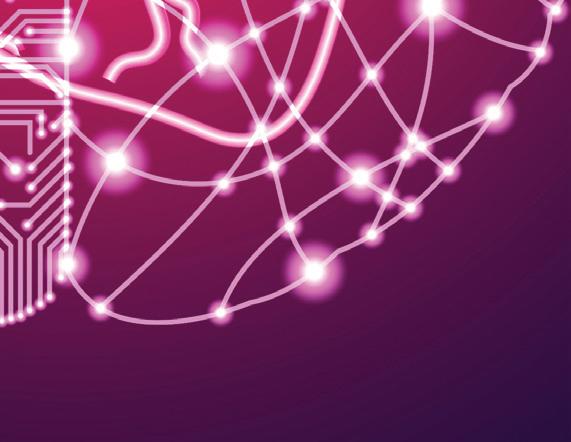

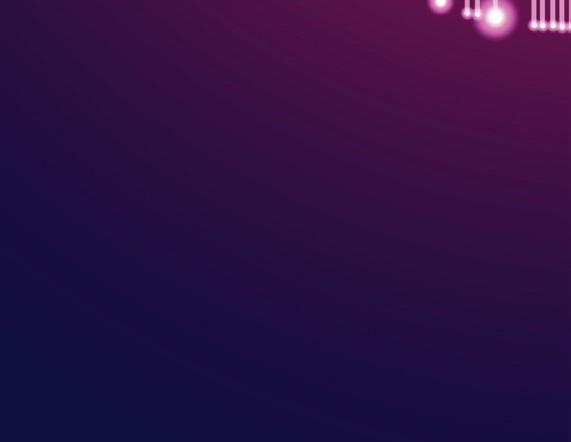



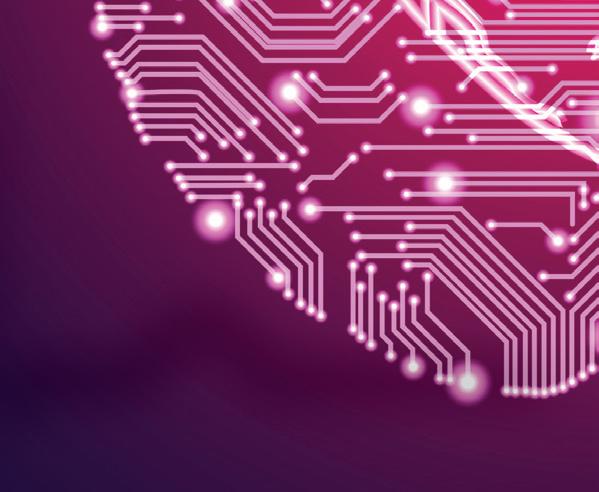
RIGOROUS PROCEDURES ENSURE THE SAFETY OF EMERGENCY DEPARTMENT PATIENTS AND STAFF.
Emergency Department (ED) visits fell sharply during the height of the coronavirus crisis, in New Jersey and nationally as well—and that has doctors worried.
“In the RWJBarnabas Health system, we’ve seen our ED volume decline by 50 percent overall, and by up to 85 percent for pediatric EDs,” says Eric Wasserman, MD, Chair of Emergency Medicine at Newark Beth Israel Medical Center (NBI).
“The problem is that disease prevalence doesn’t change,” he explains. “Heart attacks, strokes, asthma, intraabdominal diseases such as appendicitis and diverticulitis—COVID-19 didn’t make them go away, but we’ve been seeing these patients in the ED less and less.”
The probable reason: fear. “The
ERIC WASSERMAN, MD SERGIO WAXMAN, MD
likelihood is that people have been putting off care because they’re afraid to go into the hospitals and be exposed to COVID-19,” says Dr. Wasserman. “That concerns us because delaying care for many conditions can lead to disability and even death, and those risks are not necessary.
“The main message we want people to hear is, ‘It’s safe to come to the ED, so don’t put it off’,” he continues. “We’ve put many layers of protection in place for our patients KHALID TABBARAH, MD and for our staff.”
WARNING SIGNS OF HEART ATTACK
Pain or discomfort in chest
Lightheadedness, nausea or vomiting
Jaw, neck or back pain
Discomfort or pain in arm or shoulder
Shortness of breath
SAFETY MEASURES
Safety steps taken by Emergency Departments throughout the RWJBarnabas Health system include: • Separation of COVID-19 and nonCOVID-19 patients upon entry • Setting aside special areas that are completely separate from COVID-19 patients and caregivers • Creation of “negative pressure” isolation rooms that prevent airborne contaminants from drift ing to other areas in the hospital • Provision of masks for all staff and patients • Frequent disinfectant wiping of surfaces and equipment.
“Our environmental services staff is doing a fantastic job of deep-cleaning our EDs,” says Dr. Wasserman. “Every doorknob, every surface, is continuously being wiped with disinfectant.”
CARDIAC CONCERNS
Doctors have long pounded the drum for patients to call 911 if they experience symptoms of a heart attack. “Time is heart muscle,” says Sergio Waxman, MD, MBA, Division Chief of Cardiology at NBI. “The sooner we can treat you after the onset of symptoms—ideally, within 90 minutes— the less damage to your heart.”
Dr. Waxman urges people to be aware not only of the classic symptoms of a heart attack (see list, above) such as chest pain or a feeling of heaviness in the chest, but of non-traditional symptoms such as shortness of breath as well.
Adding complexity to the situation is the fact that the novel coronavirus seems to exacerbate a range of other cardiovascular problems. “COVID-19 is a vascular disease as well as a respiratory disease,” says Dr. Waxman. “It can lead to clotting in the arteries. It’s possible that a patient may have heart disease that has not been recognized, and with the stress of COVID-19 illness a cardiac event occurs. The event can be any of the known cardiac syndromes, including heart attack or heart failure. We just don’t have the answers yet.”
The important thing to know, he says, is that the advice for going to the ED is the same now as it was before COVID-19. “Pay attention to symptoms,” says Dr. Waxman, “and don’t hesitate to call 911.”
STROKE RISK
The coronavirus-related clotting that can lead to heart attacks also appears to increase risk for stroke.
A stroke occurs when a blood vessel that leads to the brain is blocked by a clot, or ruptures, leading to death of brain cells as they’re robbed of oxygen- and nutrientrich blood. Immediate treatment can minimize the long-term effects of stroke, such as speech and movement difficulties, and even prevent death.
People with uncontrolled high blood pressure or diabetes are at increased risk of stroke, as are smokers. But the pandemic has introduced a new wrinkle: a striking increase in strokes among COVID-19 patients as young as their 30s and 40s, who had no stroke risk factors and no other COVID-19 symptoms. This
To learn more about how we’re ensuring your safety at RWJBarnabas Health, visit www.rwjbh.org/welcomeback.
new risk makes it all the more important for people to act when they have symptoms (see list, below).
“Pay attention to the suddenness of the symptoms, which could include confusion and severe headache, and call 911 so you can be taken to the hospital right away,” advises Khalid Tabbarah, MD, Division Chief of Neurology at NBI.
COVID-19, can affect the nervous system in other ways, too, says Dr. Tabbarah. “One of the most common ways is the loss of smell and/or taste,” he says. “Another is exacerbation of seizures in people who are prone to them. All of these things have to be further investigated.”
What’s not in question is this emphatic advice from doctors: Don’t be afraid to go to the hospital if you need to. “You really have to weigh the risks and benefits,” says Dr. Tabbarah, “and realize that the risks are much higher if you stay at home.”
WARNING SIGNS OF STROKE
Use the acronym BE FAST to remember these:
BALANCE:
Sudden dizziness, loss of balance or coordination
EYES:
Sudden trouble seeing out of one or both eyes
FACE:
Facial weakness, uneven smile
ARM:
Weakness, unable to raise both arms evenly
SPEECH:
Impaired, slurred, diffi culty repeating simple phrases
TIME:
Call 911 immediately
WELCOME BACK!

EXTENSIVE COVID-19 TESTING OF STAFF AND PATIENTS, EXTREME CLEANING AND MANY OTHER MEASURES MAKE OUR FACILITIES SAFE FOR CARE.
The safety and health of our patients and team members have always been top priorities at RWJBarnabas Health (RWJBH). Now we’ve taken everything the medical profession has learned about COVID-19 and implemented best practices at Newark Beth Israel Medical Center and all of our facilities.
“At RWJBarnabas Health, we’ve been on a safety journey to becoming a High Reliability Organization for three years,” says John Bonamo, MD, Executive Vice President, Chief Quality Officer and Chief Medical Officer for RWJBH. “The high safety standards we had before the pandemic are making it possible for us to come back confident.”
Safety is an all-encompassing effort. “Every little thing we do is a building
block aimed at making our facilities COVID-free,” says Dr. Bonamo.
WHAT WE’RE DOING
Testing is a major way RWJBH hospitals are keeping COVID-19 from spreading. Every admitted patient, every surgical patient and every Emergency Department patient with flu-like symptoms is tested. In addition team members—whether they work directly with patients or not—are tested, many of them multiple times.
Hospital administrators and staff also have taken a hard look at all relevant processes, including how rooms are cleaned, how personal protective equipment (PPE) is used—even how air in the hospitals is circulated.
“As we discharge COVID-19 patients, the rooms in which they were cared for get a special deep cleaning,” says Dr. Bonamo. “We clean everything in the room to the nth degree, from top to bottom—including changing all the air filters and cleaning all the vents.” RWJBH has taken the enormous step of retooling all of its heating and cooling systems to pull JOHN BONAMO, MD in fresh air from
outside, rather than continuously recirculating the air inside a building. “It’s a big expense for the small number of infections it’s likely to prevent,” says Dr. Bonamo, “but each small yield of prevented cases adds up and is very important because of how quickly this disease spreads.”
WHAT YOU CAN DO
Although healthcare is an essential service, many people have avoided going to the doctor or hospital to limit their risk of exposure to COVID-19. That fear is unfounded when visiting RWJBH facilities—and it could be dangerous. Putting off urgent medical care or physician visits for chronic disease management, childhood immunizations and other health services can have devastating effects.
“You don’t want the virus, but you also don’t want a heart attack or a stroke, or for your child to get a different infectious disease,” says Dr. Bonamo. “You’re not protecting your health by staying away, you’re jeopardizing it.
“We take public health and safety extraordinarily seriously,” Dr. Bonamo continues. “We understand why people might want to avoid coming to the hospital, but it’s important for everyone to know that we can keep them safe and help them get healthy.”
TELEMEDICINE AT NEWARK BETH ISRAEL MEDICAL CENTER
• If you are not feeling well, telemedicine is an effective and convenient way for you to connect with a Newark Beth Israel Medical Center provider from the comfort of your home. During your virtual visit, a physician will determine the best course of treatment and most beneficial next steps to ensure your healthcare needs are met.
• To make an appointment with a pediatrician at the Children’s Hospital of New Jersey, call 888.41.CHONJ. Our team will walk you through the simple process to launch a video session with your doctor during your scheduled appointment time.
• To make an appointment with a physician at Newark Beth Israel Beth Prime Care, the Adult Health Center or Women’s Health Center, call 973.926. 7300.
NO EFFORT SPARED Preventing the spread of COVID-19
We’re going beyond the recommendations of the Centers for Disease Control and Prevention, the New Jersey Department of Health and other trusted organizations to implement best practices for preventing the spread of COVID-19. Steps we’re taking: • Stringent cleaning and disinfection of all rooms, including all equipment, surfaces and air vents • COVID-19 testing for all surgical patients, all admitted patients and all patients with fl u-like symptoms in the Emergency Department • COVID-19 testing for doctors, nurses and other staff. Those who have a negative test will be retested to guard against false negatives • Continued restriction of visitors based on directives from the state of New Jersey • Active screening of team members, patients and visitors (when permitted), as they enter a facility • Requirement for everyone who enters a facility to wear a mask or face covering • Strict requirements for the use of personal protective equipment (PPE) with both COVID-19 positive and non-COVID patients • Social and physical distancing measures for all people in our facilities—in all employee and patient areas • Strict hand hygiene rules, with hand sanitizer in all employee and patient areas • Retooling of the heating and cooling systems in our facilities to bring fresh air in from outside rather than recirculating inside air • Continued preparation and readiness for potential future surges.
201 Lyons Ave., Newark, NJ 07112
NONPROFIT U.S. POSTAGE PAID
Lebanon Junction, KY
PERMIT #799
You’ve taken every precaution. So have we. Welcome back.
If you’ve put off any medical care due to COVID-19, please don’t delay it any longer. As a high reliability organization, we’ve taken every precaution and continue to provide health care services. We have initiated a resumption of services in adherence to all public health guidance and regulatory policies. Learn more at rwjbh.org/WelcomeBack

